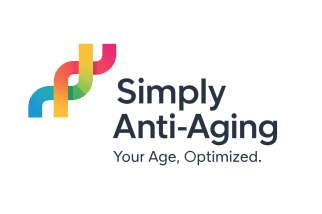Below are answers to the most common questions people ask about biological and epigenetic age testing, including accuracy, pricing, and results.
Table of Contents
🧬 What is a biological age test?
A biological age test estimates how old your body really is — not based on your birth year, but on cellular health markers like inflammation, DNA changes, and organ function.
🧠 What’s the difference between biological and epigenetic age?
Biological age tests use general markers like bloodwork and inflammation.
Epigenetic age tests use DNA methylation — tiny chemical tags on your genes — for a more precise look at how you’re aging at the cellular level.
💸 Are cheap tests reliable?
Yes, some budget tests still use valid science like methylation or glycan analysis. Just make sure they use certified labs and explain how they calculate your results.
🧪 How do these tests work?
You collect a saliva, blood, or cheek swab sample and mail it to a lab. They scan it using advanced tools and match your biomarkers to aging patterns from large datasets.
⏱️ How long do results take?
Most tests take 2 to 5 weeks depending on the lab, sample type, and the depth of analysis.
📉 Can I reduce my biological age?
Yes. Studies show biohacks like better sleep, stress reduction, intermittent fasting, and exercise can help reduce biological aging markers — sometimes by years.
🧴 Do I need supplements or coaching?
Not necessarily. Most test results are clear enough to take action on your own. But some users choose to work with longevity coaches or use supplements like NMN, omega-3s, or vitamin D.
💳 Can I pay with HSA or FSA?
Some test kits are HSA/FSA eligible, especially those processed in CLIA-certified labs. Always check the provider’s website or ask your plan for approval.
🧠 How accurate are biological age tests?
Top tests using DNA methylation (like TruAge or Elysium) are highly accurate and validated in peer-reviewed studies. Simpler tests using inflammation or telomeres are less precise but still useful. Always check for CLIA-certified labs and published science behind the test.
🧬 What is DNA methylation and why does it matter?
DNA methylation is a natural chemical process that turns genes on or off. As you age, these patterns change in predictable ways. Epigenetic clocks use this to estimate how fast your body is aging at the cellular level — which is more telling than your birthday.
📊 Are epigenetic age tests approved by medical authorities?
Most are not FDA-approved because they’re not diagnostic. However, many use technology developed by researchers at Harvard, Yale, and Duke, and are processed in CLIA-certified labs. These are considered trustworthy in the longevity and health science space.
🧫 Which is better: saliva, blood, or cheek swab?
Blood is generally the most consistent and detailed, especially for deep methylation testing. Saliva and cheek swabs are easier at home and still accurate if processed correctly. Some providers let you choose based on your comfort level.
🧪 What’s the best biological age test for first-timers?
If you’re just getting started, choose a test with clear results and easy sample collection. Tally Health and Novos are beginner-friendly. TruAge and Elysium are better for advanced users looking for full methylation panels.
💡 How often should I retest my biological age?
Most people retest every 3–6 months to track the effects of biohacking, supplements, or lifestyle changes. Just like blood tests, it’s best to wait long enough to see meaningful change.
🧘 What are the top lifestyle habits to reduce biological age?
Daily movement, 7–9 hours of sleep, time-restricted eating, and reducing chronic stress all impact biological age. Cold exposure, resistance training, and mitochondrial support (like CoQ10) also show benefits.
💊 Do supplements like NMN or spermidine really help?
Early research is promising — especially with NMN, resveratrol, and spermidine for mitochondrial and epigenetic health. That said, individual results vary and these should support, not replace, core health habits.
⚠️ Can you get bad news from a biological age test?
Not directly. These tests won’t diagnose disease. But if your biological age is much higher than your actual age, it may be a sign that your body is under stress — a helpful early warning.
🧾 Do these tests include coaching or personalized plans?
Some do. Tests like Novos and Tally Health offer recommendations. TruAge also offers add-on reports for organ-specific aging. But many users choose to interpret results on their own or with a health coach.
🧬 Ready to Know your Real Age ?
